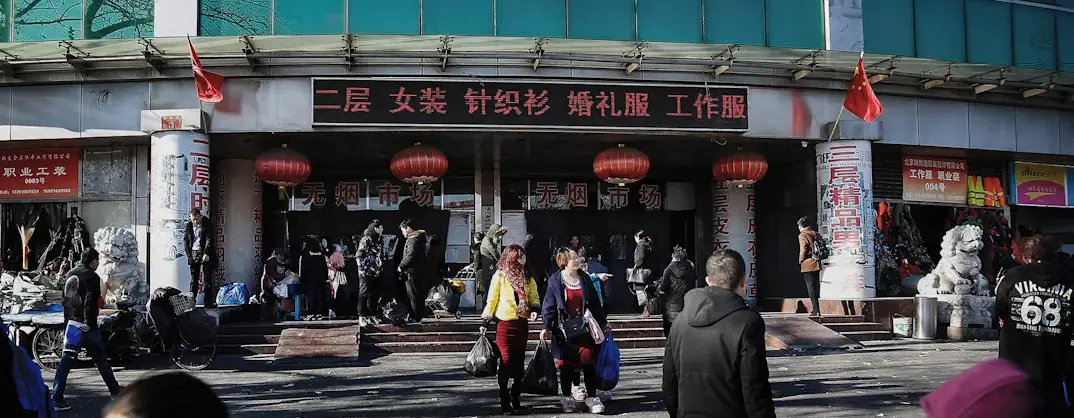《Crossing Boundaries of Community》: Fluid Relations and the Origins of Communities

“Indeed,” he lit a cigarette, stretching comfortably against the armchair, replying, “You are looking, not observing. There is a clear distinction between these two.”
————《Adventures of Sherlock Holmes: A Scandal in Bohemia》
Although we live in a well-defined world today, our reflections on past behaviors never cease. From the origins of the universe to nations, whether in natural or social sciences, the quest is to trace a starting point to prove if everything we experience is inevitable or accidental.
《Crossing Boundaries of Community》delves into the formation of a Zhejiang Village, interspersing discussions on research methodology and theoretical construction, aiming to trace the origin of a community based on the concept of “relations.” For me, the ethnographic exploration in the book1 resembles a steady stream shaping rocks—each personal account may seem transparent and insignificant, but the intellectual rock will shine beautifully with time.
Theoretical Context
The book offers a comprehensive theoretical framework with engaging problem introductions. To make research questions engaging, the book emphasizes both contemporary issues and contradictions arising from existing theories. Rather than innovation, I appreciate the way the ideas are presented.
The book examines Beijing’s “Zhejiang Village.” Despite being a cosmopolitan city, Beijing has a self-organized Zhejiang Village. This village is not a natural settlement or administrative entity, but a gathering point for Zhejiang immigrants.
Xiang Biao’s theoretical framework is outlined as follows:
Here is a note for studying the narrative logic of literature reviews.
- Phenomenon Characteristic: The village is a self-organized gathering point for Zhejiang immigrants in Beijing. This belongs to the issue of population movement.
- Theoretical Summarization: Existing theories suggest that population movement tends towards modernity from tradition. Xiang Biao summarizes various theories2 into a “tradition-modernity” framework, where these theories perceive tradition and modernity as being in a contradictory relationship.
- Theoretical Review: Coexistence, dependence, and embedding are three relations that can explain phenomena where backward and developed areas appear simultaneously due to population movement. However, coexistence theory lacks depth, dependency theory only touches on division of labor, and embedding theory addresses social structure without detailing its formation.
- Theoretical Contradiction: The process of community embedding has not been fully researched. Therefore, the paper focuses on social networks under population movement, studying the interplay of social networks, trust, and community formation as key to understanding Zhejiang Village’s emergence.
- New Theory Proposed: Emphasizing social network analysis, a series of theories already carry this idea3.
Indeed, Xiang Biao’s theoretical views are quite similar to Yang Xiaokai’s Neoclassical Economics, though one explains communities and the other markets. The core logic revolves around these two points:
- A person appears independent, but when many connect, a market emerges, and individuals are influenced by social networks rather than acting independently. This logic chain—unseen hand-market economy-web model-general equilibrium-community formation—is summarized by Xiang Biao as “the fracture between the whole and the particular,” which may seem abstract, but essentially illustrates the internal contradiction of individual independence versus the collective’s dominance.
- Since social networks are always composed of people, we can analyze the entire social network through individual decision-making. This viewpoint is shared by Yang Xiaokai, Xiang Biao, and classical Bayesian network models, all emphasizing their theories that open the black box of the formation process while completing retrospective and unit analysis tasks 🤪. Yang Xiaokai’s marginal analysis focuses on consumer-producer individual general equilibrium, while Xiang Biao centers on relationships between individuals. In the “Thirteen Invitations,” Xiang Biao discusses the “disappearance of proximity” because he consistently advocates this market theory of individuals and social networks.
The key difference lies in the fact that Yang Xiaokai builds upon Adam Smith’s division of labor creating wealth theory, starting from decision-making in labor division; Xiang Biao focuses on relationships forming a general equilibrium.
Xiang Biao’s approach is more inclusive4, integrating ethics into analysis, providing ample room for exploring the ethical values, family structures, and collective ventures that shape Zhejiang Village.
Narrative Method
Economics emphasizes evidence-based analysis and persuasion, often abstracting theories to establish frictionless frameworks. However, social sciences, as seen in 《Crossing Boundaries of Community》, involve a more comprehensive scanning of scenarios, aiming for a richer depiction of human experiences, leading to a more encompassing understanding of the world5.
I recall a classmate being astonished upon seeing a social science dissertation filled with everyday records—how could such mundane, unfiltered observations be considered academic work? Yet, sociology transforms self-awareness into consciousness. As Sherlock Holmes’ adventures highlight, it’s about observing, not just looking.
When we review each chapter of 《Crossing Boundaries of Community》 individually, everyday trivialities might seem mundane. Everyone understands that post-reform entrepreneurship, institutional execution can be chaotic, and markets are driven by relationships. However, stitching together all chapters, Xiang Biao subtly constructs his “protruding facts.”
- Individual Traits:
Zhejiang merchants prioritize relationships over kinship, valuing movement and entrepreneurship. Clothing technology spreads outward through kinship relationships. These ethical traits contribute to Zhejiang Village’s expanding social network and cultural characteristics. This process transforms individual characteristics into entrepreneurial, sales, industrial, market, and ultimately community relations6, from isolated individual action to collective movement.
- State Interaction:
Why can’t states or eras alone explain Zhejiang Village’s formation? Zhejiang Village has its own framework, gradually marketizing, where many merchants accumulated wealth independently, rather than directly benefiting from reform. Zhejiang Village repeatedly clashed with Beijing’s administration, expanding through institutional reform, demonstrating its autonomous order.
Through this relational perspective, more can be explained—systemic interactions, policy versus counteractions, class and tiered divisions, top-down interventions versus grassroots responses. This goes beyond mere mechanical opposition, delving into complex interactions driven by identity, rendering simplistic labels of advanced or backward meaningless, focusing instead on internal behavior and decision-making processes.
This theory leans heavily towards liberalism—spontaneous order7 is disrupted by excessive intervention, and rather than control, understanding and acceptance are essential8.
- Entry Point:
Xiang Biao didn’t begin with the intricate relationships shaping communities; his research initially focused on Zhejiang Village’s garment industry development. Over time, his studies unearthed relationships influencing community formation. Even discovering relationships was straightforward. China has traditionally been considered a society of interpersonal networks, but articulating community origins through relationships and population movement provides a mature narrative perspective.
Alienation and Moral Perspectives
Sociology amazes me because alienating the everyday makes everything seem extraordinary. Zhejiang Village, in its resistance to state governance, lacks a corporate enterprise model but thrives with unconventional vitality. Imagine if we were residents of Zhejiang Village, could we easily identify these traits? Alienation is a powerful analytical tool!
However, this raises methodological debates—what role should researchers take when entering research subjects? How should they alienate the environment? Xiang Biao opposes abstract generalization, instead aiming to provide rational explanations through daily phenomena, crafting a self-organized order for Zhejiang Village. His inclusiveness and willingness to rationalize are admirable, but it reflects a moral choice—accepting phenomena and attempting to rationalize them.
Constructing forward-thinking moral frameworks is difficult. Is there truly rational absurdity? Who decides which phenomena are absurd? These questions remain elusive, possibly contributing to why social sciences are not universally recognized as scientific.
Footnotes
-
Scholars like Malinowski, Pan Suiming, and Xiang Biao have shown remarkable dedication to ethnographic research.
-
Tönnies (community and society), Durkheim (mechanical solidarity and organic solidarity), Weber (substantive rationality and formal rationality), Pareto (traditional and legitimate domination), Lewis (industrial and agricultural sectors), Parsons (pattern variables)…
-
Emergent fact. This theory is quite intriguing as the addition of relations brings qualitative change. For instance, three separate lines are meaningless individually, but when connected, they form a triangle with significance.
-
I resonate with a critique that economics often quantifies social networks and social capital, overlooking the influence of ethical values.
-
Among those I’ve encountered, sociology students tend to be the most well-read.
-
There are many fascinating details in these descriptions, proving Zhejiang merchants’ cultural and relational expansion, which are too extensive to detail here.
-
I now understand why many recommend Hayek’s works, as his emphasis on spontaneous order and knowledge systems provides profound insights.
-
However, Beijing’s Zhejiang Village has been dismantled by strong administrative measures, which long-term impacts might undermine the credibility of individual social networks.
